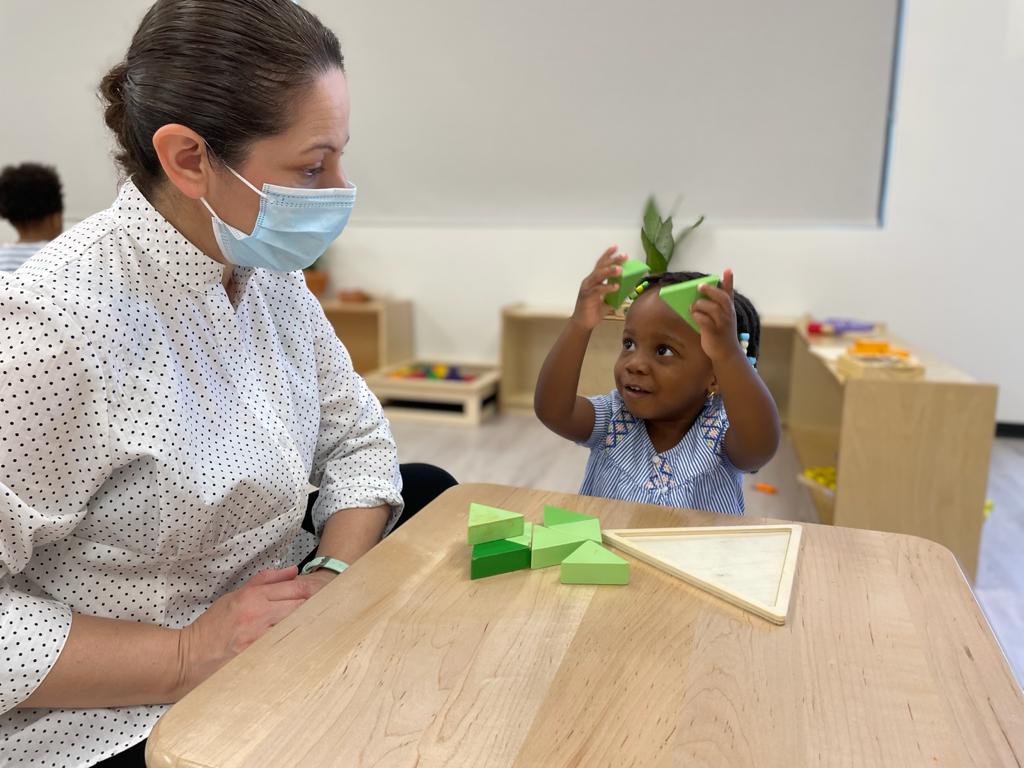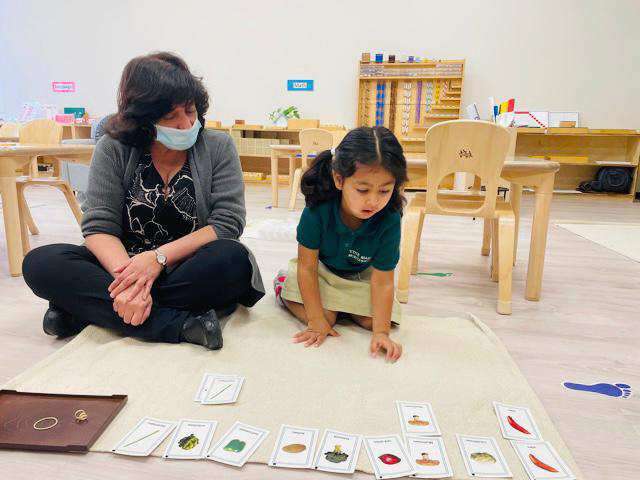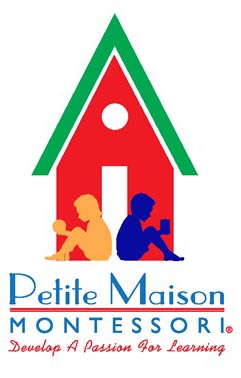Our Programs
Programs

Toddlers
The Toddler Classroom at Petite Maison consists of children ages 18 months to 35 months with a 3 and 5 day program, either half day or full day. In this classroom, children engage in social experiences, self-eating and table habits, toilet learning, and independence. We also prepare them for introductory concepts in Language, Math, Sensorial, Practical Life, Art, and Music.
The young child’s mind is more like an acute observer or scientist who is eager to learn, explore, try new things, and master new skills. But most importantly, the earlier we begin a program of intellectual, physical, sensory, and artistic education, the more dramatic the results will be. Children demonstrate they can concentrate, observe and absorb, master new ideas, and develop new skills. This is a time of tremendous brain growth in all areas. During this period, when the mind is stimulated by a rich environment, the brain will literally develop a stronger and lasting ability to learn and accomplish tasks.
Language: Language emphasis on vocabulary building and effective communication. Toddlers progress from body language and sounds to using words and phrases. It begins when the child enters the classroom for the first time. Teachers and fellow students greet each other, and social experiences occur by name and face recognition. Name cards and labels are used to help children assimilate. Letter sounds are introduced with songs and we use sandpaper letters to teach the basic phonetics and recognition of lower case letters. Having acquired a sound phonetic foundation, the Montessori student is prepared is prepared for future spelling, reading, and writing experiences.
Math: Math principals are acquired through indirect preparation in the Sensorial area and through various hands-on exercises. We introduce counting quantity and associate the quantity with numerals 0-10. Additionally, students are introduced to one-to-one correspondence, sorting, and patterning. Many materials are concrete rather than abstract so they can be touched, manipulated, and counted. With this, the child forms a solid foundation for understanding basic concepts of our decimal system.
Sensorial: The Sensorial area expands the child’s sensory perceptions and knowledge of the world. Maria Montessori called Sensorial materials the “key to the universe” because they enable a child to perceive, identify, and classify what he sees, touches, smells, tastes, and hears. Sensorial lessons have a base ten foundation which lends itself directly to mathematical concepts. We often isolate one stimulus at a time that explores and exercises a child’s multiple senses.

Primary / Kindergarten
At Petite Maison, the Primary classrooms range in age from 3 to 6 years old. We offer half day or full day programs, 5 days a week. In our Primary Classrooms are divided into 5 areas practical life, sensorial, math, science, and language.
Language: Language emphasis on vocabulary building. It begins when the child enters the classroom for the first time. The phonetic reading and writing program uses sand paper letters to teach the basic phonetic sound and recognition of lower case letters. Having acquired a sound phonetic foundation, the montessori student is prepared for spelling and reading.
Math: Math principals are acquired through indirect preparation in the sensorial area and through manipulation exercises. These materials are concrete rather than abstract, they will be touched manipulated and counted. With this the child forms a solid foundation for understanding basic concept of our number system.
Science: Science stimulates curiosity, encourages active observation, and builds scientific vocabulary. At Casa Dei Bambini children will do simple science experiments for example mixing two primary colors resulting in to a secondary color, learning about magnets and non-magnetics, living and non-living etc. Science can be intimidating, but when children try different experiments it becomes easier to understand.
Sensorial: Sensorial area expands the child sensory perceptions and knowledge of the world. Maria Montessori called sensorial materials the “key to the universe” because they enable the child to perceive, identity, and classify what he/she sees, touches, smells, tastes and hears.
